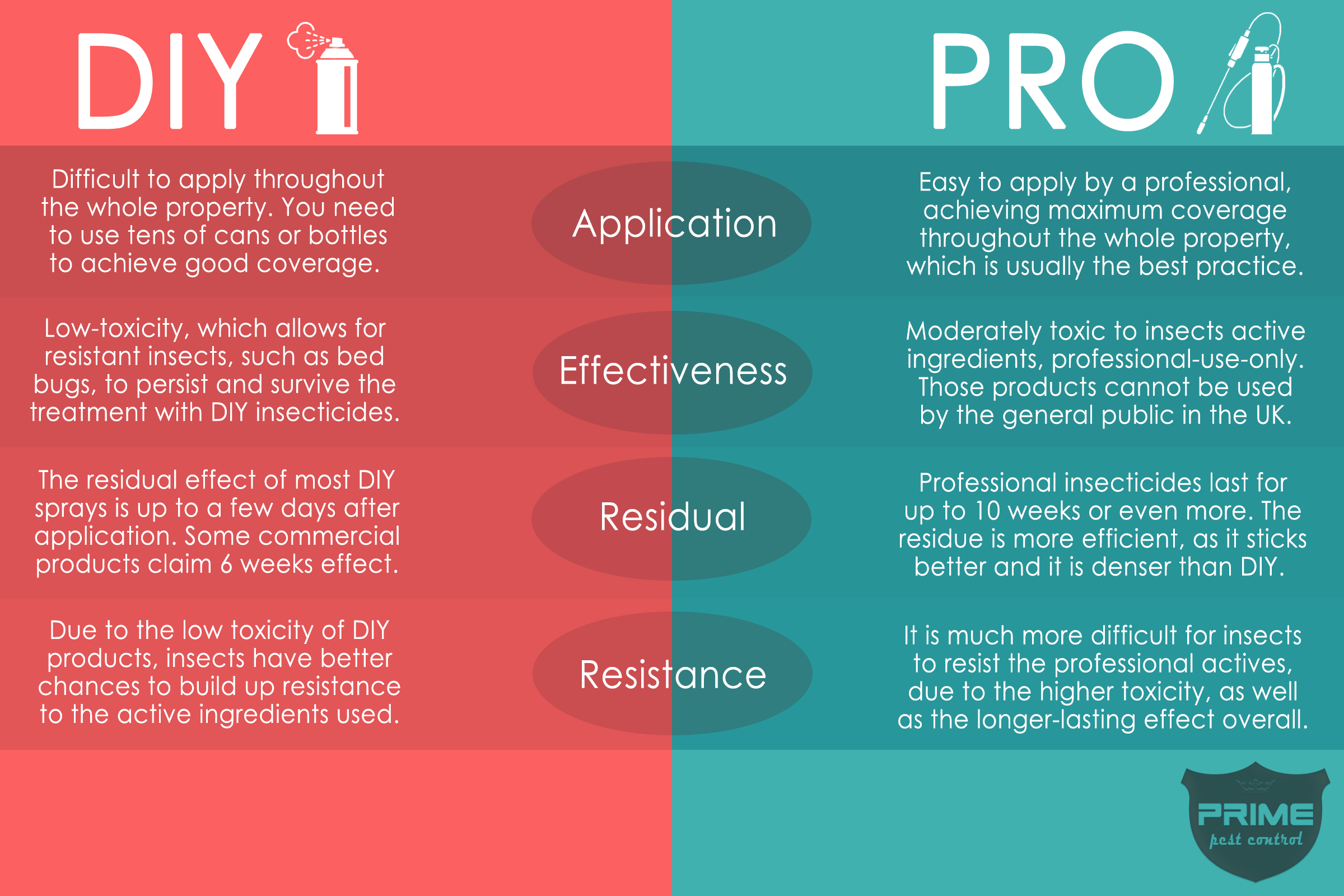
Do It Yourself pest control
Pest control is always a matter of chance in terms of success rates. Chances and risks always vary, depending primarily on the type of pest, level of infestation, layout of the property, the treatment methods available, the process itself as well as all preparation and post-treatment procedures. A lot of factors could influence the outcome of a treatment, no matter if you treat the infestation with DIY products or hire a professional service. There are pest technicians and companies that may not deliver a thorough and comprehensive service, while some people from the general public seem more knowledgeable and motivated to get rid of the problem themselves.
The commercial or DIY active ingredients in the UK and other countries with more advanced pest control legislation are available to the general public, but there are professional-use-only insecticides, which cannot be purchased without holding a professional qualification issued by the British Pest Control Association (BPCA) in the UK.
Professional-use-only pest control products
The professional pesticides in general are more toxic to the pests, compared to the toxicity of commercial products. Their efficiency is greater due to the level of toxicity but also the active ingredients are different. Professional-use-only actives achieve a quicker knockdown effect, while preventing reproduction, eggs hatching and moulting with insect growth regulators (IGRs). The professional equipment in combination with those advanced insecticides in the hands of an experienced and thorough technician is by far superior in comparison to the DIY methods. The application process is much more thorough, the residual effect and the longevity of the professional actives are greater.
With bed bugs, for example, in the majority of cases the commercial bed bug sprays and smoke bombs result in spreading this evolved insect throughout the property. Do-it-yourself methods and products encourage bed bugs to hide deeply in difficult to reach places, where there is not enough residue to completely poison them. Generally speaking, even the most efficient active ingredients applied through residual spray work slowly over time. In bed bug cases, the waiting period in-between professional treatments is usually 2-3 weeks, while the insects are getting slowly poisoned through their nervous system, after getting in contact with the residue. There are products that may work instantly when you spray directly on some pest insects, but others like bed bugs have evolved mechanisms to persist active ingredients or evade the treatment, hidden deeply in a crack or crevice.
Author:
Blago Manov
Managing Director
Bed Bug Hunters & Prime Pest Control


